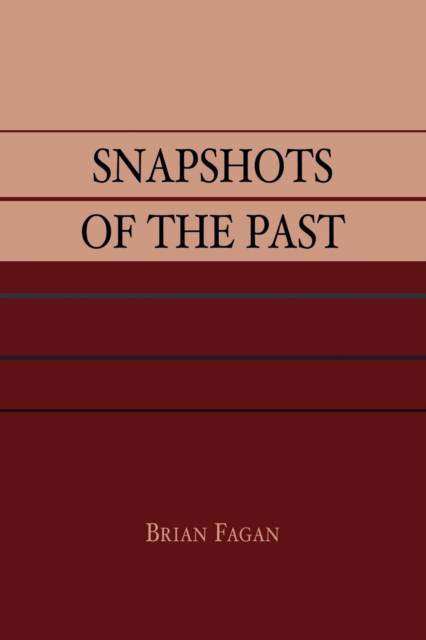
- Retrait gratuit dans votre magasin Club
- 7.000.000 titres dans notre catalogue
- Payer en toute sécurité
- Toujours un magasin près de chez vous
- Retrait gratuit dans votre magasin Club
- 7.000.0000 titres dans notre catalogue
- Payer en toute sécurité
- Toujours un magasin près de chez vous
Description
Archaeology has been a subject of endless fascination to scholars, students and the general public. For the past three decades, Prof. Brian Fagan has been the key narrator of the story of the past for many, through his textbooks, trade books and numerous magazine and journal articles. In recent years, Fagan has reported on the latest news, theories, and controversies in archaeology through his regular Timelines column in Archaeology Magazine. In Snapshots of the Past, Fagan collects many of these vignettes into a single work, leading the reader on a tour through time and space that ranges from the ascent of the human species to the public controversies that concern today's archaeologist. In these 30 brief chapters, the author offers readers a series of "snapshots" of the issues of greatest contemporary interest: the Eve hypothesis, the peopling of the New World, site looting, the translation of Mayan hieroglyphs, the domestication of animals, the impact of feminism on archaeology, the archaeology of slavery, and evidence of human cannibalism, among many others. Included among the articles are several pieces written specifically for this volume, including a description of the recent, spectacular cave art finds at Chauvet Grotto in France. For instructors of archaeology, the book is a handy compilation of brief, interesting cases to engage your students. For serious archaeologists, the book represents a collection of works of one of the important synthesizers of the field. For the avocational archaeologist, the book provides a fascinating, readable update on issues of current concern.
Spécifications
Parties prenantes
- Auteur(s) :
- Editeur:
Contenu
- Nombre de pages :
- 168
- Langue:
- Anglais
Caractéristiques
- EAN:
- 9780761991090
- Date de parution :
- 25-09-95
- Format:
- Livre broché
- Format numérique:
- Trade paperback (VS)
- Dimensions :
- 151 mm x 227 mm
- Poids :
- 276 g

Les avis
Nous publions uniquement les avis qui respectent les conditions requises. Consultez nos conditions pour les avis.






